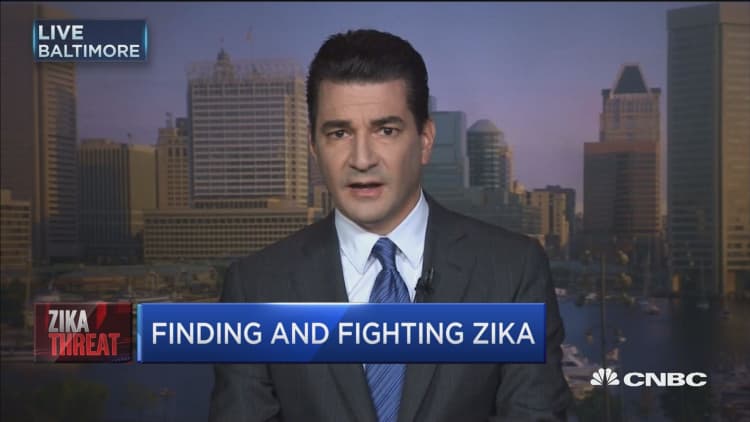
Recent studies suggest the effects of the Zika virus infection on fetuses may be worse than previously thought, but local outbreaks are "eminently controllable," Dr. Scott Gottlieb said Thursday.
Gottlieb, an American Enterprise Institute senior fellow, spoke after Florida confirmed 15 cases of locally transmitted Zika in the Miami area and the Centers for Disease Control and Prevention warned pregnant women not to travel to the South Florida neighborhood where most of the infections originated.
Isolated local outbreaks can be easily quelled with mosquito abatement, Gottlieb said. What is more concerning is recent research that suggests Zika can produce a higher rate of fetal anomalies than previously thought, he said.
The CDC has concluded that a Zika infection in pregnant mothers can lead to microcephaly and other birth defects. Researchers initially thought women in the first trimester of pregnancy infected with Zika had a roughly 1 percent chance of their unborn child developing microcephaly, Gottlieb said. But CDC research released in May suggested it could be as high as 13 percent.
"You start to worry that any virus that's powerful enough to have that kind of an effect on a developing fetus probably is having other impacts as well that we're just not detecting, so the infection itself seems to be more concerning than what we initially thought," Gottlieb told CNBC's "Squawk Box."
Researchers are still learning about the relatively new virus, he said, but literature suggests it could have a more profound impact on the neurological system, not only in developing fetuses, but in babies, children and adults.
Gottlieb said he also worries Zika could have impacts on pregnancies beyond the first trimester that are subtle and undetectable until much later.
"I don't mean to be alarmist, but I do think the virus itself is concerning. That said, we should be able to control it. This should not be a virus that becomes certainly epidemic in the U.S.," he said.
The most effective means of preventing future outbreaks is testing mosquitoes pre-emptively so that those found to carry the Zika virus can be eradicated, he said.


